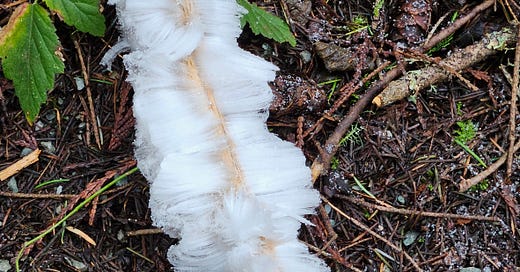When the National Impacts the Local
"What they don't understand is that we're not like them. We chose government service to make a difference, not to make money."
I started this post a week ago, but I've had to scrap several first drafts as events overtook what I’d put down. A week later, I'm ready to take a first step beyond outrage and reaction.
I've written before about the value of acting locally and of being famous for fifteen miles, rather than for fifteen minutes. "With so much going on nationally, it's easy to forget that local political decisions can have a great impact on our lives," I wrote in the latter piece. True. But what to do when the national has a great impact on the local?
I have to recognize that my attention can’t be everywhere all at once. I have to focus where I can make the most difference, which is locally and in my areas of special interest around water.
And there’s plenty to attend to. The administration's attacks on Federal Agency funding are affecting almost every project I'm working on.
Jake Goldstein-Street, one of several Everett Herald alumni that have gone on to great things, at the The Washington Standard reported in Washington leaders offer more detail on federal funding blocked by Trump that:
The status of more than $50 million in federal grants to Washington’s Department of Ecology remained in doubt late Tuesday, halting projects on water quality, shoreline restoration and toxic site cleanup.
This, on top of Washington State’s budget shortfall, puts the PFAS projects I’m working on in jeopardy. EPA payments also underwrite the Drinking Water State Revolving Fund which we’re relying on to help our water system consolidation efforts. I heard just today that I’ve been accepted as a member of the Habitat Strategic Initiative Advisory Team, which helps select Puget Sound recovery projects for funding from EPA’s National Estuary Program, now also at risk.
The administration’s attacks on Federal Agency staff are cutting close to home, too.
Among my friends here are two members of the first class of women to graduate from Annapolis Naval Academy, who have just seen Coastguard, Navy, and Air Force officers dismissed because they are women.
Back in November I wrote about feeling like water eroding a stone in my efforts to get details on the Navy's implementation plans and timetable for following the DoD's EPA MCL Implementation Memo for addressing PFAS contamination. Then just last week I was on a guest panel, Ecology Day at a local workshop for young leaders. Another panelist is a civilian working for the Department of Defense on environmental issues and was part of that PFAS email chain. She told the group that she’s feeling “beaten up” right now and conflicted in her role in balancing the nation's defense and environmental needs. Her reports are demoralized. But she's going to carry on. Her oath is to the country, not to one man. I introduced myself and thanked her for answering my emails and doing her best to give me as much information as she was allowed to share. She thanked me and gave me a quick side hug.
"What they don't understand is that we're not like them. We chose government service to make a difference, not to make money."
Later, I talked to a friend at EPA. She's at a high enough level to be replaced by a political appointee, but she's not going anywhere voluntarily. She's staying to fight as long as she can. She showed me this from the latest "Fork in the road” email and FAQ sent to federal employees encouraging them to resign:
Q: Am I allowed to get a second job during the deferred resignation period?
A: Absolutely! We encourage you to find a job in the private sector as soon as you would like to do so. The way to greater American prosperity is encouraging people to move from lower productivity jobs in the public sector to higher productivity jobs in the private sector.
She told me: "What they don't understand is that we're not like them. We chose government service to make a difference, not to make money."
I sent emails to both of them on the deadline day for federal employees to accept the buyout offer, encouraging them to hang in there and not quit. Less than an hour later, a judge temporarily blocked the buyout deadline.
Just now, I heard back from each of them:
Thank you so much!
and
Thank you. This means more than you know.
For my part, then, I’m going to continue supporting my friends and colleagues among Federal, State, and County staff, and kicking in more volunteer time and effort to keep the projects and programs I care about afloat. That, of course, includes writing about it here.
Thanks, as always, for reading or listening. Please comment, share, or consider becoming a free or paid subscriber.






As one of many Canadians genuinely fearful of being 'absorbed' as a 51st state, we're resolute in our solidarity with all efforts of scientists and ecological warriors on both sides of the border to do whatever it takes to preserve and hopefully, restore our shared land, water and air quality. The sheer madness unfolding in the US may be the very thing required to ignite the complacent among us, and if so, then so be it. Sometimes things have to get worse before they get better. I take tremendous comfort in knowing that good people everywhere are standing up to the worst among us at a time when our human habitat is under threat and all sense and reason seems to be lost. Fight the good fight, as you always have done Mr. Lovie, and know that millions of Canadians stand with you.
Thank you, John! I greatly appreciate this "inside look" at what is happening. I am deeply concerned and also trying to figure out how to engage locally. Ann